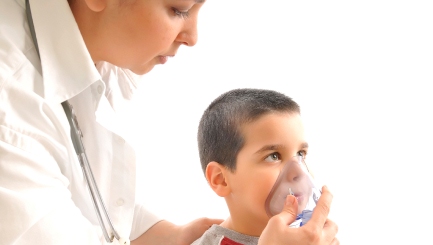Are Children’s Inhalers Actually Making Their Asthma Worse?
 Children who have asthma often rely very heavily on their medication to ensure their health and wellness remains as good as possible. It’s something that many parents of asthma sufferers will take for granted. And why shouldn’t they? We often think that if medication is prescribed by a doctor then it must be the right thing for us. While this is usually the case, a new study has revealed that certain types of inhalers might actually be doing more bad than good for asthmatics.
Children who have asthma often rely very heavily on their medication to ensure their health and wellness remains as good as possible. It’s something that many parents of asthma sufferers will take for granted. And why shouldn’t they? We often think that if medication is prescribed by a doctor then it must be the right thing for us. While this is usually the case, a new study has revealed that certain types of inhalers might actually be doing more bad than good for asthmatics.
Children with serious forms of asthma are often prescribed the standard steroid inhaler and a second medication that features a drug called salmeterol. But it has now been suggested that another drug, called montelukast, would be more effective in treating a large number of patients.
A new study carried out by researchers from Brighton and Sussex Medical School and the University of Dundee confirmed that for one in every seven child sufferers the salmeterol inhaler, commonly marketed as Seretide, may not work because they carry a gene which makes it ineffective. When asthma is not treated with effective drugs it can become significantly worse, with an increase in coughing and wheezing, extra difficulties breathing and a higher risk of asthma attacks.
The researchers studied 62 children carrying the gene who regularly used the standard inhalers but had still missed school or needed treatment for their asthma. Half took the salmeterol inhaler while the others took montelukast. Those who took the montelukast generally reported less coughing and wheezing and a better quality of life.
A simple spit-test would be able to immediately identify which children carry the gene and those children could then be prescribed the correct drugs. This would be a simple and effective way to ensure better asthma treatment in the future.


Comments are closed.